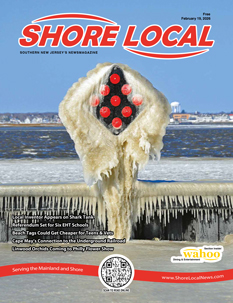By Eric Reich
When meeting with clients, the topic of estate planning comes up often. While the process can be simple in some cases, there are certain things you’ll want to look out for and mistakes you’ll want to avoid. Poor estate documents can lead to people accidentally cutting loved ones out of inheritances, paying big tax bills unnecessarily, and saddling families with expensive, head-scratching legal battles.
Here are five mistakes – from the obvious to the obscure – people tend to make when planning their estates:
1. Beneficiary blunders
Not naming a contingent beneficiary on retirement accounts and insurance policies – or failing to review beneficiaries often enough – can be a big mistake. The default if no contingent is picked is likely your estate, which may be subject to probate, creditors, delays, etc. Forgetting to change an ex-spouse on an IRA can have unfavorable consequences for your new spouse or family. (Note, in a retirement plan, your new spouse becomes your beneficiary the day you get married, but not in an IRA.) If you don’t want your current spouse to be the beneficiary of your retirement plan, then they must agree to you naming someone else. And no, your pre-nuptial agreement doesn’t matter in this case, because only a spouse can waive those rights, and a fiancée isn’t a spouse yet.
2. “Selling” property for $1
This was popular years ago in areas that saw very rapid land appreciation. For example, when my grandfather moved to Avalon, he paid almost nothing for his bayfront properties. Today, those lots would sell for millions of dollars. The theory was that you could sell it for a very low price and not have to pay taxes on the gain and remove it from your estate. You can sell property for whatever you want, but:
The IRS will deem it a gift if it is less than market value, and
Your heirs will lose the “step up” in value.
Here is an example: If I inherit a property worth $1 million and sell it for $1 million, I may pay no tax. But if I “buy” it for $1 and sell it for $1 million, I pay tax on the $999,999 gain.
3. Naming specific investments in your will
Specific bequests are handled first, and the person who died might not even own that investment anymore. Their estate might be required to purchase the investment at a much higher price, which could hurt all of the other beneficiaries.
4. Not having a residuary clause
A residuary clause deals with everything you didn’t specifically name in your will or trust. It includes things you don’t yet own but will before your death and things you might not know you own. This happens more than you think.
5. Leaving assets directly to a minor without assigning a custodian
Who will handle the money for them? In addition, you’ll want to choose the custodian carefully. Define “for their benefit.” Does a new Escalade count because the kids won’t fit in my Honda Civic? That phrase welcomes a whole host of potentially abusive interpretations.
Be sure to read next week’s column, which will cover five more mistakes. In the meantime, consider contacting a qualified estate planning attorney to review your situation. Feel free to reach out if you have questions or need a recommendation.
Securities offered through Kestra Investment Services, LLC (Kestra IS), member FINRA/SIPC. Investment advisory services offered through Kestra Advisory Services, LLC (Kestra AS), an affiliate of Kestra IS. Reich Asset Management, LLC is not affiliated with Kestra IS or Kestra AS. The opinions expressed in this commentary are those of the author and may not necessarily reflect those held by Kestra Investment Services, LLC or Kestra Advisory Services, LLC. This is for general information only and is not intended to provide specific investment advice or recommendations for any individual. It is suggested that you consult your financial professional, attorney, or tax advisor with regard to your individual situation. To view form CRS visit https://bit.ly/KF-Disclosures.
Eric is President and founder of Reich Asset Management, LLC. He relies on his 25 years of experience to help clients have an enjoyable retirement. He is a Certified Financial Planner™ and Certified Investment Management AnalystSM (CIMA®) and has earned his Chartered Life Underwriter® (CLU®) and Chartered Financial Consultant® (ChFC®) designations.


















